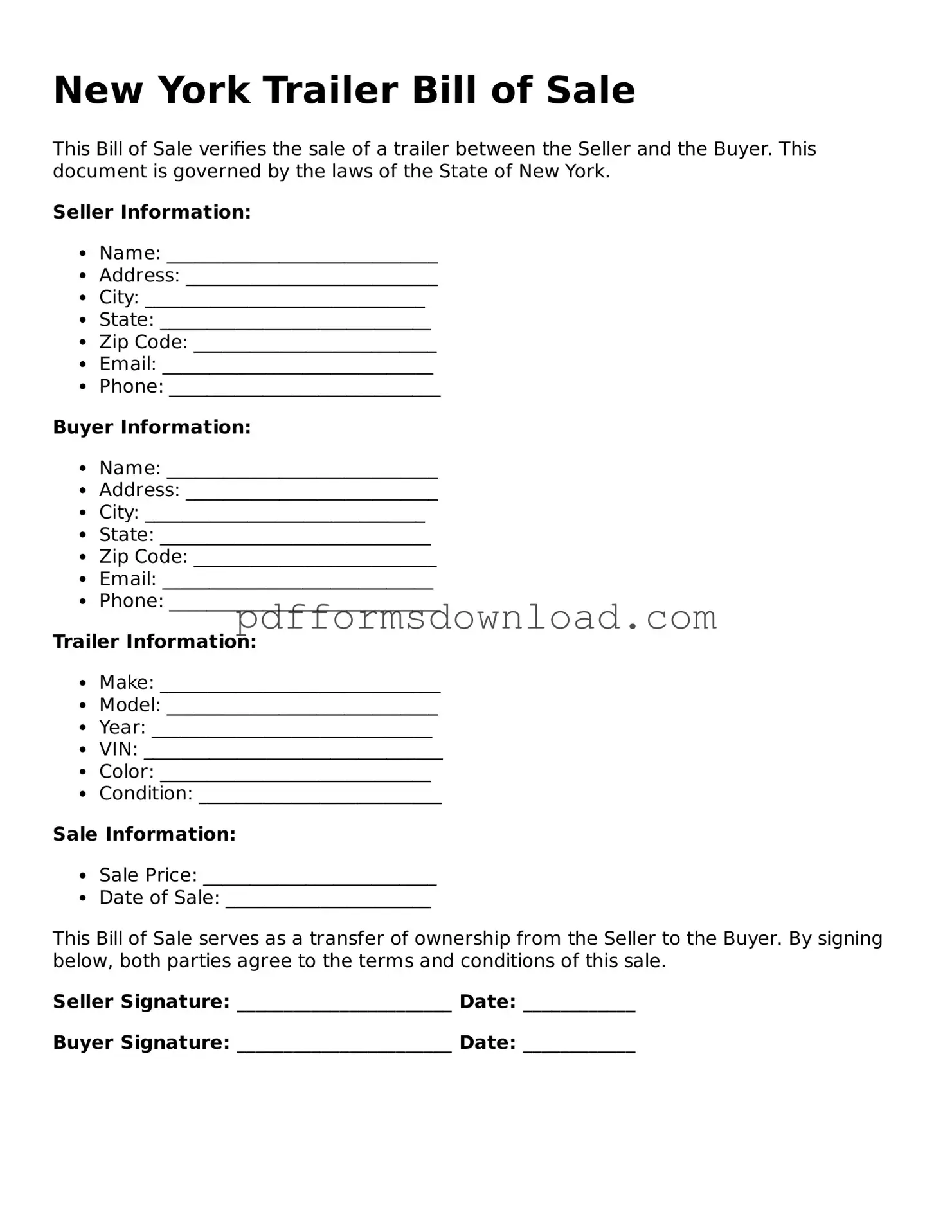What is a Trailer Bill of Sale form in New York?
A Trailer Bill of Sale form is a legal document that records the sale of a trailer from one party to another in New York. It serves as proof of ownership transfer and includes important details about the transaction, such as the names of the buyer and seller, the trailer's description, and the sale price.
Why do I need a Trailer Bill of Sale?
This form is essential for establishing legal ownership of the trailer. It protects both the buyer and seller by documenting the terms of the sale. In case of disputes or questions about ownership, this document can serve as evidence of the transaction.
What information is required on the form?
The form typically requires the names and addresses of both the buyer and seller, a detailed description of the trailer (including make, model, year, and Vehicle Identification Number), the sale price, and the date of the transaction. Both parties should sign the document to validate it.
Do I need to have the Trailer Bill of Sale notarized?
While notarization is not always required in New York, having the document notarized can add an extra layer of authenticity and protection. It may be beneficial, especially if you plan to register the trailer with the Department of Motor Vehicles (DMV).
Can I use a generic Bill of Sale for my trailer?
You can use a generic Bill of Sale, but it’s advisable to use a specific Trailer Bill of Sale form. This ensures that all necessary details pertinent to trailers are included, reducing the chance of misunderstandings or omissions.
What should I do after completing the Trailer Bill of Sale?
After completing the form, both the buyer and seller should keep a copy for their records. The buyer should take the signed form to the DMV to register the trailer in their name. This step is crucial to ensure legal ownership and compliance with state regulations.
Is there a fee associated with registering the trailer after the sale?
Yes, there is typically a fee for registering the trailer with the DMV. The amount can vary based on the trailer's weight and type. It’s best to check the current fee schedule on the New York DMV website or contact them directly for accurate information.
What if the trailer has a lien on it?
If there is a lien on the trailer, it is crucial to resolve it before completing the sale. The seller should ensure that the lien is paid off and that the lienholder provides a release. This protects the buyer from potential legal issues regarding ownership.
Can I sell a trailer without a title?
It is generally not advisable to sell a trailer without a title. In New York, a title is often required for registration. If the title is lost, the seller should apply for a duplicate title before proceeding with the sale to avoid complications.
Where can I obtain a Trailer Bill of Sale form?
You can often find a Trailer Bill of Sale form online through various legal websites or the New York DMV website. Additionally, you may also create a custom form using templates available online, ensuring all necessary information is included.

